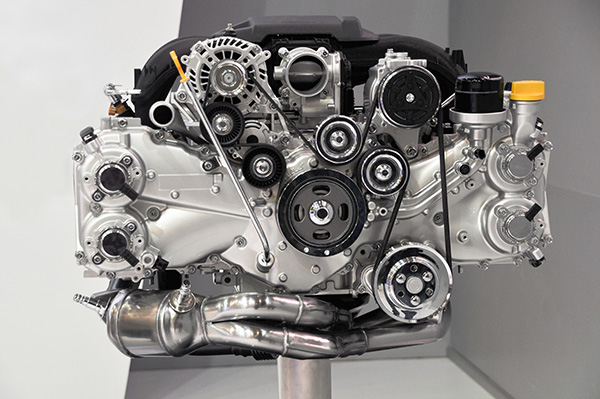
At first glance, diesel trucks and gas-powered vehicles might seem similar. Both require oil changes, brake inspections, and fluid checks. But underneath, diesel engines operate differently. They rely on higher compression, generate more torque, and are often used in heavier-duty applications. These differences affect how often maintenance is needed, what systems require extra attention, and how to keep the engine running reliably over time.
Whether you drive a diesel for work or personal use, knowing how its needs differ from a gas-powered vehicle can help you avoid costly repairs and keep it in peak condition.
Oil Change Intervals and Oil Type
Both diesel and gas engines need regular oil changes, but diesel engines typically run with more oil and at higher pressures. Diesel oil is thicker and contains more additives to handle the demands of higher combustion temperatures and soot from fuel combustion.
Oil change intervals for diesel trucks are usually longer than those for gas-powered cars, often ranging from 5,000 to 10,000 miles, depending on usage and manufacturer guidelines. However, if the truck is used for towing or stop-and-go driving, those intervals may shorten. Always check the owner’s manual and consider how the vehicle is driven.
Fuel System Differences and Filter Changes
Diesel fuel systems operate at higher pressures and are more sensitive to contamination. Water in diesel fuel can cause major problems, which is why most diesel trucks have a water separator and multiple fuel filters. These filters need to be changed more frequently than in gas-powered vehicles.
Failing to replace fuel filters on time can lead to hard starts, poor performance, or even damage to injectors and fuel pumps. This is one of the most important maintenance items specific to diesel engines.
Glow Plugs vs. Spark Plugs
One of the biggest differences between diesel and gas engines is the ignition system. Gas engines use spark plugs to ignite the air-fuel mixture. Diesel engines rely on compression and heat to ignite the fuel, so they use glow plugs to help start the engine in cold weather.
Glow plugs don’t need regular replacement like spark plugs, but they can wear out over time. If your diesel truck struggles to start when temperatures drop, weak or failing glow plugs might be the cause.
Air and Turbocharger Maintenance
Many diesel engines come equipped with turbochargers to help improve power and efficiency. A turbocharger requires clean air to function properly, which puts extra importance on the air filter. Diesel trucks need more frequent air filter checks and replacements, especially if they’re used in dusty environments or for towing.
Keeping the turbo system clean and inspecting for oil leaks or unusual noises is part of good diesel maintenance. Contaminants in the air intake can damage turbo fins, reduce boost, and lower fuel economy.
Emissions Equipment and DEF Systems
Modern diesel trucks come with complex emissions control systems, including Diesel Exhaust Fluid (DEF), diesel particulate filters (DPF), and selective catalytic reduction (SCR) systems. These systems help reduce emissions but also require regular attention.
Running low on DEF or ignoring warning lights related to emissions systems can reduce performance or trigger a limp mode. In some cases, these systems need to be cleaned or serviced to prevent buildup that can clog filters or sensors.
Cooling System Stress
Diesel engines generate more heat than their gas counterparts, especially when towing. That makes the cooling system even more important. Radiators, water pumps, and coolant hoses must be in top condition to handle heavy loads and long trips.
Coolant should be flushed and replaced based on the manufacturer’s recommendations. Using the wrong type of coolant can lead to corrosion inside the engine and reduce the life of the system.
Brake and Transmission Wear in Heavy Use
Because diesel trucks are often used for towing or carrying heavy loads, the brakes and transmission may experience more wear and tear. Brake pads, rotors, and fluid should be inspected regularly, especially if the truck is driven in hilly areas or used for frequent hauling.
Transmission service intervals may also need to be adjusted based on how hard the vehicle is worked. Heavy-duty use creates more heat and increases the chance of early wear without proper maintenance.
Let Strande’s Garage in Denton, TX, Keep Your Diesel Truck Running Strong
Diesel trucks are built for power and durability, but they have unique maintenance needs. At Strande’s Garage in Denton, TX, we specialize in diesel service and understand the differences that matter. Whether you need fuel system maintenance, glow plug diagnostics, or emissions system service, we’ll make sure your truck stays reliable and road-ready.
Schedule your diesel maintenance with us today and keep your investment performing at its best.